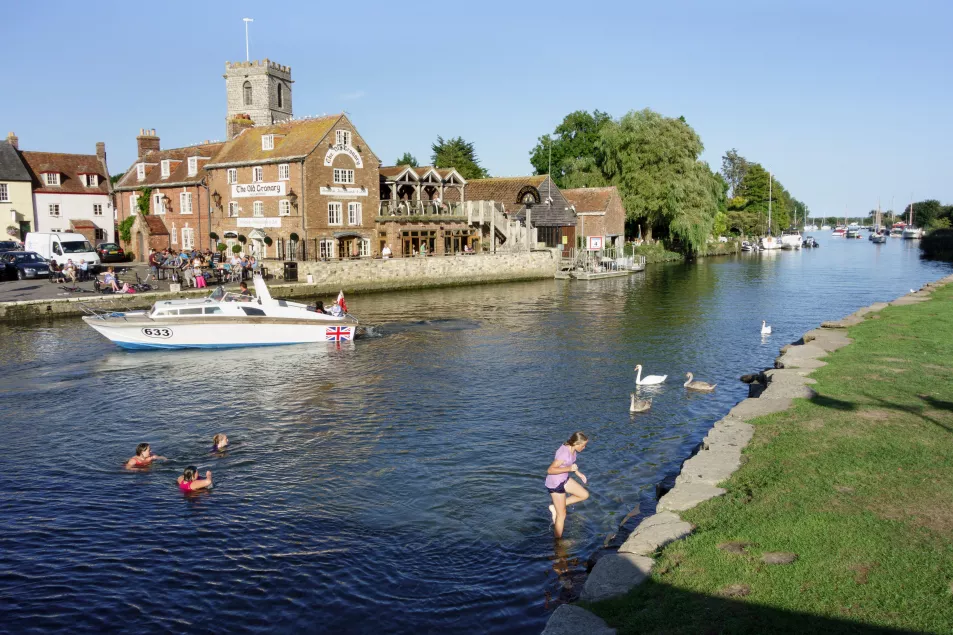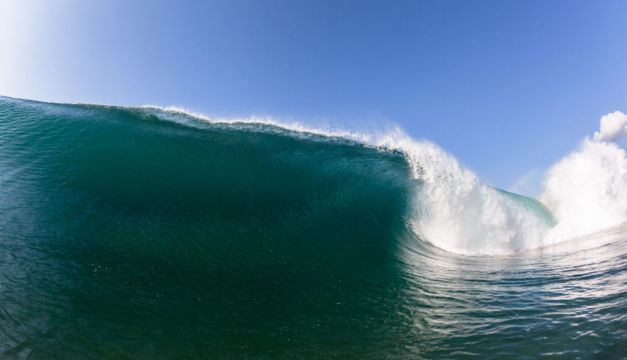Every time the weather gets hot and sticky, there is devastating news of children and young people getting into difficulties as they cool off in open water.
Recently, a 14-year-old boy died after getting in difficulty swimming at Burrow beach in Sutton, Co Dublin.
And as the heatwave continues, experts warn that even if a child or young person is a good swimmer and open water looks safe, there can be many hidden dangers.

Here’s what parents should make sure children and young people know about the dangers of cooling off in open water…
1. Cold water can kill
All waters in and around Ireland are cold enough to cause cold water shock, even in summer. This shock can make swimming difficult – you may start to hyperventilate and your blood pressure may shoot up as your body tries to keep the blood warm by moving it towards the middle of your body. As the muscles cool, strength, endurance and muscle control reduce to the point when you may not be able to swim any longer and could have difficulty getting out of the water.
Children may feel like strong swimmers in a warm swimming pool, but swimming in open water is a different story entirely, and cold water shock becomes a real factor.
2. Assess your surroundings
When around water, children need to remember to stop and think. The ‘water safety code’ says to take time to access your surroundings, look for dangers and research local advice.
Parents should tell children to have a look for possible dangers before getting into any water, including the depth, which may be different in different parts.

3. Remember there may be unseen dangers
There can be many nasty and potentially dangerous surprises lurking underwater, including sharp objects, and weeds that legs can get tangled in. Underwater objects and hazards may not be visible.
4. Find out about currents
There may be strong currents in seas and rivers, which may not be at all obvious from the surface but could challenge even the strongest swimmers. There may be signs warning about currents, or local people may know.
If you find yourself caught in a riptide, don’t swim against it – you’ll tire yourself out. Swim with the current and call for help.
5. Look out for lifeguards and safety equipment
If there are lifeguards at an open water site, or even safety equipment like lifebelts, clearly the water is a lot safer. If there’s a lack of safety equipment, there’s increased difficulty for rescue.
6. Float to live
Parents should make sure children know that floating could help save their lives if they get into difficulty in open water.
If you fall in or become tired, stay calm, float on your back and call for help, or if you see someone in the water, throw something that floats to them and resist temptation to go in.
7. Make sure you’re with friends
Always go swimming with friends or family. Stay together when around water, so if anything goes wrong you’ve got someone there to help.
8. Stay near the shore
Warn kids not to swim too far away from the shore. Always swim parallel to the shore, that way you’re never too far away from it.
9. Know what to do in an emergency
It’s vital that parents make sure their children know what to do if something goes wrong. In an emergency call 999 and ask for the Fire and Rescue service when inland and the Coast Guard if at the coast.







